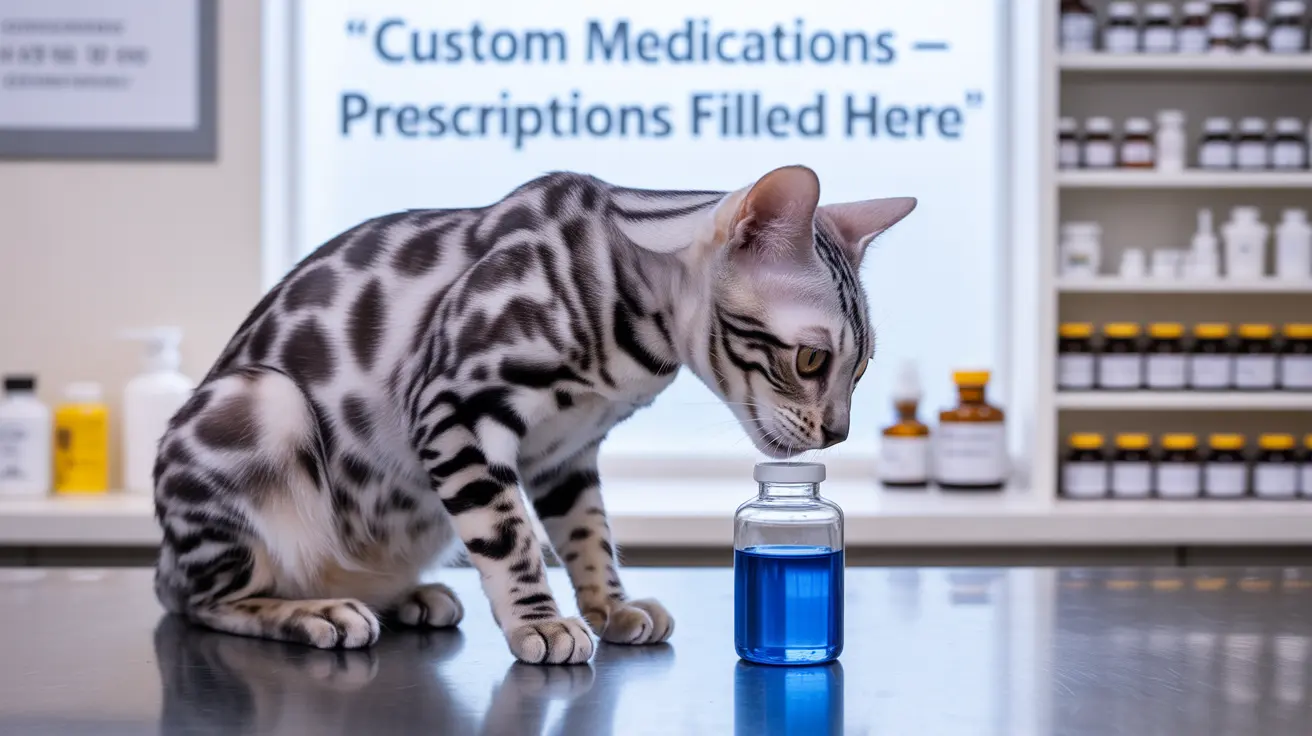What is a Veterinary Compounding Pharmacy?
A veterinary compounding pharmacy is a specialized facility where licensed pharmacists create custom medications tailored specifically for individual animals. These pharmacies serve a crucial role in veterinary medicine by modifying existing medications or combining ingredients to meet the unique needs of pets that cannot use standard commercial medications.
Unlike traditional pharmacies that dispense pre-manufactured drugs, veterinary compounding pharmacies can adjust medication strength, change delivery methods, add pet-friendly flavors, and create entirely new formulations based on a veterinarian's prescription. This customization ensures that pets receive exactly what they need in a form they can easily take.
The Benefits of Customized Pet Medications
Tailored Solutions for Every Pet
One of the primary advantages of veterinary compounding is the ability to customize medications to match your pet's specific needs. Whether it's adjusting the dose for a tiny kitten or creating a chicken-flavored version of a bitter pill, these pharmacies can solve common medication challenges that pet owners face daily.
Compounding pharmacists can create medications in various forms, including:
- Flavored liquid suspensions
- Transdermal gels
- Chewable treats
- Easy-to-dissolve tablets
- Topical creams and ointments
Addressing Special Medical Needs
Compounding pharmacies are particularly valuable for pets with specific medical conditions or requirements. They can remove allergens, adjust concentrations, and combine multiple medications into a single dose. This customization is especially beneficial for:
- Pets with allergies to standard drug ingredients
- Animals requiring precise dosing
- Pets that refuse traditional medications
- Cases where commercial medications are unavailable
Quality and Safety Standards
While compounded medications aren't FDA-approved, veterinary compounding pharmacies operate under strict regulatory oversight. They must comply with state pharmacy board regulations and FDA guidelines to ensure the safety and quality of their products. Professional compounding pharmacists use pharmaceutical-grade ingredients and follow precise formulation protocols.
Working with Your Veterinarian
Access to compounded medications requires a valid prescription and relationship with a veterinarian. Your vet will evaluate your pet's specific needs and determine if a compounded medication is the best treatment option. They'll work directly with the compounding pharmacy to ensure the prescription meets your pet's exact requirements.
Cost Considerations and Insurance
The cost of compounded medications can vary depending on the complexity of the formulation and ingredients required. While some compounded medications may cost more than commercial alternatives, they can actually be more cost-effective in the long run by improving medication compliance and reducing the need for repeated treatments.
Frequently Asked Questions
What is a veterinary compounding pharmacy and how does it help my pet?
A veterinary compounding pharmacy creates custom medications specifically designed for your pet's needs. They help by modifying existing medications to make them easier to administer, adjusting doses for precise treatment, and creating alternatives when commercial options aren't suitable.
Are compounded medications from a veterinary compounding pharmacy safe and effective for my pet?
Yes, compounded medications are safe when prepared by licensed pharmacists following strict quality control standards. While not FDA-approved, they are regulated by state pharmacy boards and the FDA to ensure safety and quality.
How do I get a prescription for a compounded medication from a veterinary compounding pharmacy?
You'll need to work with your veterinarian, who will evaluate your pet and write a prescription if a compounded medication is appropriate. This requires an established veterinarian-client-patient relationship (VCPR).
What kinds of custom formulations can veterinary compounding pharmacies create for pets?
Compounding pharmacies can create various formulations including flavored liquids, transdermal gels, chewable treats, capsules, and topical medications. They can also combine multiple medications into a single dose or remove allergens from existing medications.
Are compounded medications more expensive than regular pet prescriptions, and are they covered by pet insurance?
Costs vary depending on the formulation and ingredients. While some compounded medications may cost more than commercial options, many pet insurance plans do cover them when deemed medically necessary. Check with your insurance provider for specific coverage details.






